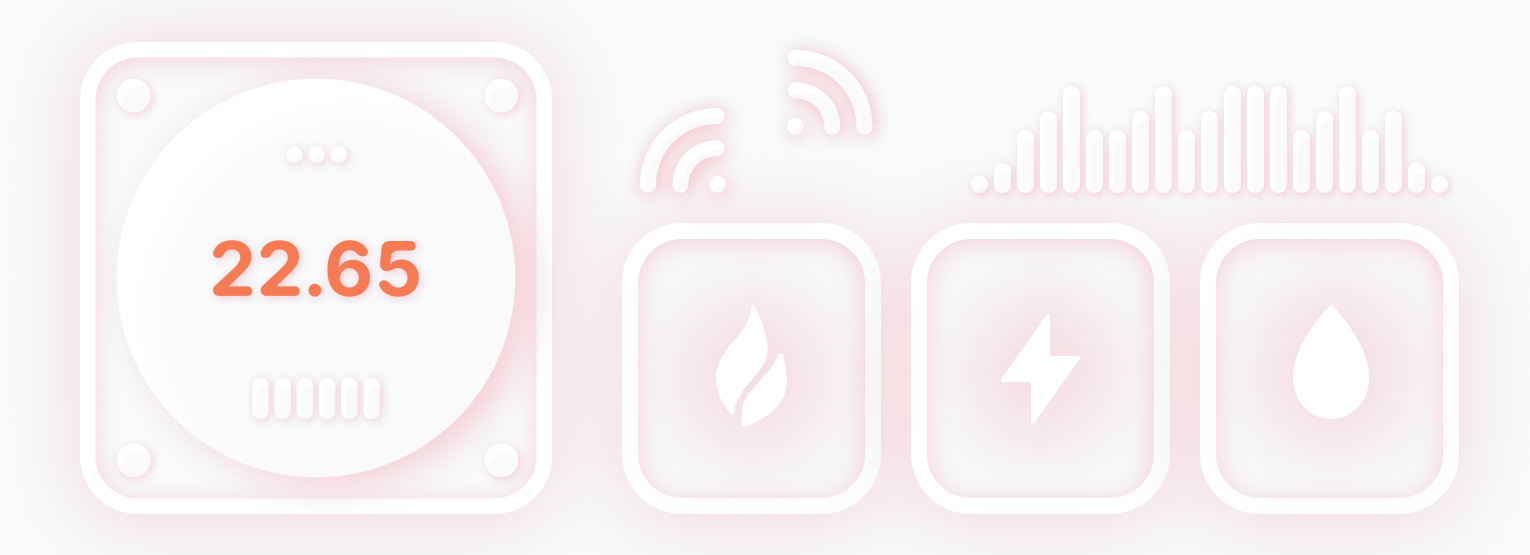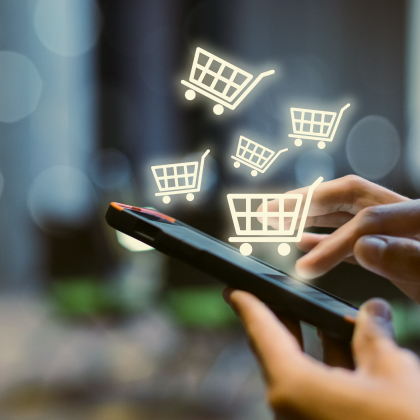Smart resource metering devices (for water, gas, and electricity metering) are fundamentally changing the approach to data collection. Modern technologies enable automatic data collection from metering devices, eliminating the need to send and record information manually. In this article, we focus on three data collection methods in modern smart meters: magnetic, optical, and inductive.
Smart metering: How devices measure resources
Remote resource metering solutions utilize a variety of smart devices, including smart meters, radio modules, and IoT sensors. These devices automatically capture meter readings (the time and frequency of data capture can be configured) and transmit them through wireless communication to a server. At this stage, the resource provider, utility management company or municipality can access the data in the software.
Depending on the resource type and operating principle, different types of data capture can be used in smart devices. Let’s look at these in more detail.
Magnetic data reading method
Magnetic readers calculate the amount of consumed resources by recording changes in the magnetic field. These devices are usually installed on meters with moving or rotating parts, like disks or drums. These meter parts generate a magnetic field. When the counter mechanism moves, the sensors detect the field changes caused by the movement. The device accumulates data about the number of disk revolutions and then transmits it according to the settings of the data transmission frequency.
The benefits of the magnetic method are high measurement accuracy and easy integration to existing meter models. Such meters work reliably under difficult operating conditions (for example, in dusty or humid environments). Magnetic readers are most commonly used in water and gas meters.
Optical data reading method
Optical readers use light beams to identify meter data. Usually these devices recognize numerals, barcodes or rotating tags.
The data reading process in smart resource meters starts with optical recognition, when a camera or photo sensor scans the displayed data. After scanning, the device analyzes the captured image and converts it into a digital format. The data is then sent to a server or cloud storage for processing.
The benefits of optical sensors include the fact that they are compatible with different meter types and can be easily installed on existing mechanical meters. Moreover, due to the non-contact reading method, these devices last longer as the wear and tear on their equipment is lower than on meters with built-in sensors.
Optical readers are often used to modernize old meters in which electronic sensors cannot be installed. They are also popular in the power and utility industries.
Inductive data reading method
Inductive devices use electromagnetic phenomena to read data. These metering devices measure changes in induction caused by the movement of metallic elements inside the meter.
Inductive sensors create a magnetic field in the devices. When a metallic element (for example, a disk or shaft) passes through the field, it changes. The device registers these changes and converts them into digital data on the resource consumption.
Metering devices utilizing the inductive method can be used in aggressive environments due to their durability. This is largely due to their elements not being in contact with each other and avoiding being quickly worn out.
Inductive readers are widely used in industry and the energy sector because they can record data with high accuracy and are resistant to external impacts.
Remote metering benefits
IoT-enabled resource tracking technologies bring resource metering to a completely new level: smart algorithms provide suppliers, utility management companies, municipalities and end users with a number of benefits:
Automated readings: users don’t have to keep in mind the date to send readings and self-report them. Suppliers receive correct data within a clearly defined timeframe and minimize the possibility of human error.
Real-time tracking: suppliers and users get up-to-date information on the resources consumed. Users can thereby regulate consumption and save resources, while suppliers receive data for consumption analysis.
Remote access: resource suppliers do not need to send controllers to check meter readings. This significantly saves time for the company’s employees and increases data collection efficiency because consumers not being at home to allow meter readings to be taken is no longer an issue.. Conversely, consumers do not have to adjust their schedules to fit in with a home visit, making things far more convenient for them.
Wireless data collection in smart meters
Remote utility tracking with smart devices makes metering as convenient and accurate as possible, allowing suppliers to react faster to emergencies and maintain convenient analytics. Thanks to these technologies, users are guaranteed to receive accurate bills for consumed services and are no longer required to transmit meter data on a monthly basis.
Modern technologies provide supply companies and municipalities with remote metering solutions that allow them to achieve high accuracy and automate metering. Magnetic, optical and inductive methods are the most favored — the choice of data transmission technology depends on the resource type, meter operation, operating conditions and metering system requirements. These innovations offer many benefits to both users and resource suppliers, including time savings, error prevention and convenient data management.



